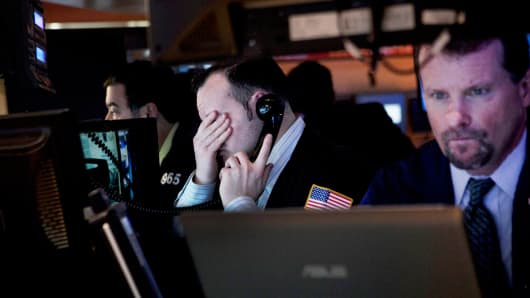To the U.S. prosecutors moving forward with insider trading charges all I can say is "good luck." Wall Street isn't afraid of you. The U.S. appeals court's stunning, unanimous decision to overturn the December 2012 convictions of two hedge fund traders has blown the doors off the legal definition of insider trading. According to the ruling, insider trading may be legal in certain circumstances, even if it gives an investor an unfair advantage. This decision will likely reinforce the lack of trust in financial services professionals and the belief that the markets are rigged for a select few.
It was yet another reputation-damaging year in the financial services industry: the collapse of Espirito Santo bank, corruption scandals in Brazil's state oil company Petrobras and investigations of insider-trading at France's BNP Paribas. Closer to home, the SEC is investigating fees charged by private equity advisers, and five major U.S. banks agreed to pay $4.3 billion to settle charges of systematically manipulating the foreign currency markets, with criminal prosecutions still a possibility.
Read More It just got 'easier to cheat' on Wall Street
It's clear that recent scandals and the regulatory reforms they provoked have not sufficiently changed how some participants in the financial industry conduct their business.
As participants in that industry, we're doing the public – and ourselves – an injustice if we write the litany of scandals off as "just a few bad apples" or even worse, as the price of doing business. We are making it too easy for the public to equate the finance industry with self-dealing, dishonesty and corruption. Trust, not cash, is the fuel that makes the financial system function, and when investors, big and small, start to regard the system as one rigged against them, the risk of collapse will never be far away.
Acting on this belief for the past four years we've conducted a Global Market Sentiment Survey (GMSS) to invite the insights and perspectives of our members — respected industry experts — on the economy, market integrity, and their expectations for the coming year. This year, members said that they expect the world economy to grow, and their concerns over the negative impact of central banks' tapering of quantitative easing programs have eased. On the other hand, their optimism is tempered by the potential for continued weakness in developed economies as well as the ongoing effects of political instability in many regions.
The greatest area of concern for the health of the global economy, however, remains the same as it has year after year: the lack of trust in the industry. Over half of our members (63 percent this year, up from 54 percent last year) blamed this on a lack of ethical cultures within financial firms, suggesting the problem stems more from flawed (unethical) internal firm culture than from poor government regulation and enforcement. Nor are members seeing any improvement in the level of integrity of global capital markets, with a majority expecting the state of integrity in 2015 to stay about the same as its level in 2014. Members told us they regard market fraud such as insider trading (25 percent, consistent with our finding last year) and problems with financial reporting to be the most serious issues facing the integrity of global markets.
Read MoreEverything you ever wanted to know about insider trading
Make no mistake – we're all proud of the work we've done and do every day here at CFA Institute to foster a culture of trust. But the work is not done. Indeed, the results of the 2015 GMSS tell us it's only just begun. Potentially unmanageable risks remain, optimism about economic growth is tepid among investors and too many clients are being mis-served by our industry.
So what can be done, and who needs to do it?
- Globally regulators and policy makers need do a more effective job managing risk. Our members indicated that improved regulation and oversight of global systemic risk (28 percent) was the regulatory or industry action most needed in the coming year to help improve investor trust and market integrity. Feedback from different regions suggests that in the six years since the global financial crisis, the degree of cross-border cooperation between regulators with regard to detecting and mitigating systemic risks does not yet appear to be sufficient.
- For the third consecutive year, members have said that local regulators have to step up their enforcement of existing laws and regulations.
At the firm level, members said that to improve investor trust and confidence, top management needs to more fully align compensation with investor objectives (31 percent), and institute a zero tolerance policy for ethical breaches (27 percent). Firms also need to adhere to ethical codes and standards (21 percent). We recently announced that BlackRock, the world's largest asset manager, joined more than 1,000 firms worldwide in adopting our Asset Manager Code of Professional Conduct, which outlines the responsibilities of firms that manage assets on behalf of clients. The trend in adoption of the Asset Manager Code is gratifying; seeing firms, like BlackRock, which sign up to the code and actively demonstrate their integrity are the kind of industry leaders we need to advance the profession and shape a more trustworthy financial industry.
Read MoreThis market is like 1999 all over again: Ablin
A renewed commitment to ethical conduct won't make people see investment and financial professionals as deserving of trust, but it's the best way to ensure the integrity of the financial markets. Ethics is not a luxury, it's a necessity.
Commentary by Thomas R. Robinson, managing director for the Americas at the CFA Institute.


